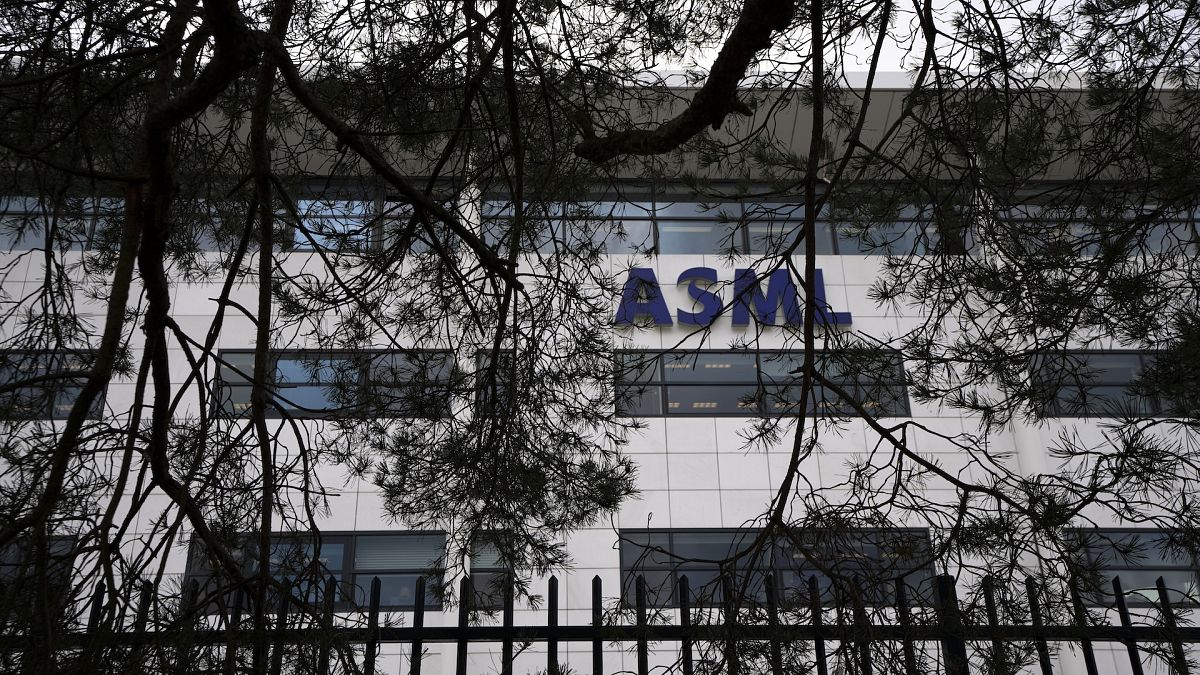ASML Holding saw its largest weekly drop since 2002, falling 17%, due to potential US restrictions on chip exports to China. Bank of America views the impact as manageable, suggesting the sell-off may be a buying opportunity.
Dutch chipmaker ASML Holding experienced its most significant weekly drop since December 2002, plummeting by 17% last week. This sharp decline followed reports that the US administration is considering further restrictions on advanced chip exports to China. These measures would target even non-US companies using US-made technology, under the foreign direct product rule.
US chipmakers have argued that these restrictions unfairly disadvantage them while other nations continue their business as usual, particularly with the US presidential election approaching. The proposed restrictions are expected to significantly affect both ASML and Japan's Tokyo Electron.
On July 17, Bloomberg reported the news, triggering an 11% drop in ASML shares, marking their worst single-day decline since March 18, 2020, when the global lockdown began. ASML's market valuation plummeted from €400 billion to €326 billion, dropping it to third place among Europe's largest companies, behind Louis Vuitton Moet Hennessy.
ASML released its second-quarter financial results last week, reporting stronger-than-expected earnings and revenue. However, the potential for increased US restrictions on ASML's chip exports to China triggered a wild stock selloff that the positive earnings could not contain.
Impact can be manageable, according to Bank of America
In light of the severe market reactions affecting Europe's largest tech firm, Bank of America analysts evaluated the potential impact of these new restrictions on ASML's operations. Equity analyst Didier Scemama noted: "China servicing risk is manageable."
The expert estimated that a ban on servicing equipment in China could reduce ASML's revenues by 3% or less. If restrictions are limited to certain customers, the revenue impact could be closer to 1%.
Given ASML's revenue of €27 billion in 2023, Bank of America estimates that the potential impact of further restrictions could range between €270 million and €770 million.
The investment bank highlighted that ASML's significant exposure to China, accounting for 49% of its Q2 sales, mirrors Beijing's investment growth in this sector. Bank of America does not expect a substantial reduction in this trend in the near future, despite the ongoing geopolitical tensions.
Bank of America projects €40 billion in revenues for 2025E and €34.7 in EPS (compared with previous estimates of €39.8 billion and €34.9 billion, and consensus estimates of €36.2 billion and €31.9 billion).
Scemama reiterated ASML as his "top pick" in the semiconductor sector, suggesting the recent downturn offers a strategic buying opportunity ahead of the 14 November Capital Markets Day, where ASML is expected to raise its 2030 revenue targets.
Bank of America maintains a price target of €1,302 for ASML, indicating a 60% upside from ASML's closing price on Friday, July 19.
In summary, while the market's reaction to the news of potential export restrictions has been severe, the fundamental strengths of ASML suggest that the selloff may be exaggerated.
For investors evaluating ASML, the recent price drop might represent a compelling entry point, given the company's strong financial performance and critical role in the semiconductor industry.
ASML's investment in research and development ensures that it remains at the forefront of technological innovation. The company's continuous improvements in EUV technology and the development of next-generation lithography machines are critical for maintaining its market leadership and driving future growth.
Nonetheless, investors should consider the broader geopolitical context and regulatory landscape, which could continue to introduce volatility in the short term.















